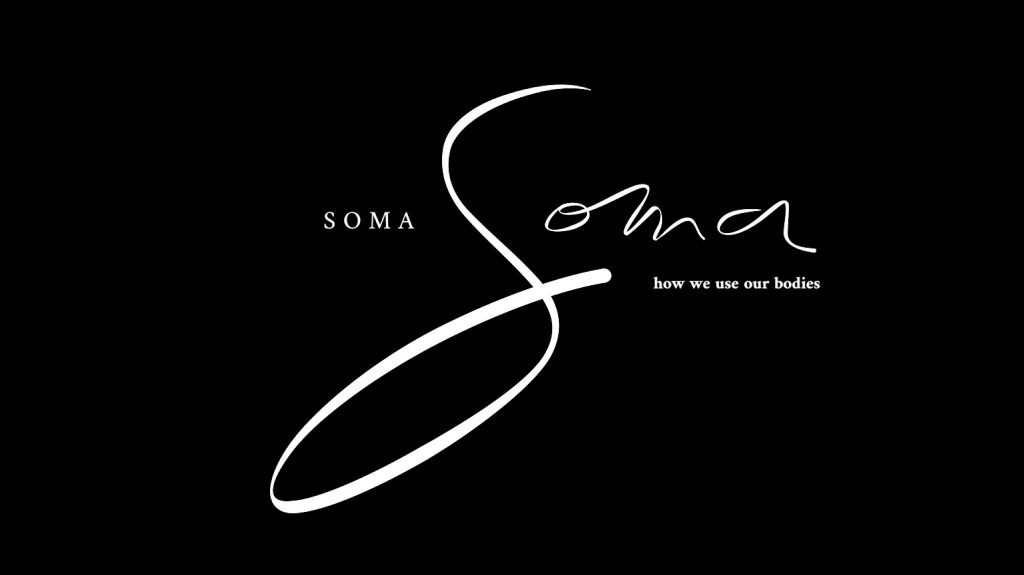
welcome to the end of this short poetic essay series on SOMA
SOMA (n.) is defined as the parts of the body as distinct from the soul, mind, or psyche.
in this series we have explored the body:
how we speak to our bodies,
how we treat our bodies,
how we see our bodies, and
how we use our bodies
—
in this fourth and final part of the series, i go beyond the experiential to the functional;
how we use our bodies is result of how we speak, treat and see our bodies.
as the saying goes, the whole is greater than the sum of the parts;
and so too are our bodies the sum of how we speak, treat and see our bodies.
our bodies are the sum of our divisions, our desires, and our experiences;
and more, they are a reflection of a divine imprint, a creation footprint, an image engraved into eternity.
i hope this SOMA poetic essay series has invited you
to explore how you speak, treat, see and use your body

my body has a mind of its own:
what it wants, how it moves
sometimes i feel embodied
i dwell within this home
i am aware of her sensations and desires
other times i feel disembodied
my body aches and spasms
she involuntarily does things without consent
my nerves start to sing of new frequencies
my muscles pulse with desire
i trip without intending to
in a moment the body
can be consumed
by anger and rage and emotion
or found in peace and stillness
in a moment the body
can be loved
the next
abused

how i use my body is how i live in my body;
how i learn of her ways and want,
how i treat her with respect and honour
she is a gift from God
she has the ability to move, to home life
i have been
given this body
and i can choose
to give this body
in service, in joy, in love
in passion and resilience
in depth and dance;
motion and emotion
my body is capable
of wonder
of pain
of birthing life
and enduring
suffering
of bleeding
and pouring
life upon life
from dust to dust
for my body
is capable
of life
and death
my body
will have an end
this earthy kind
of body
but there is
another kind
of body
a heavenly kind
a divine kind

how i live in my body
how i carry burdens
how i engage in friendships
how i commit to love
how i sleep at night
how i deplete my energy
how i consume my energy
all of the ways i use my body
impact, affect, imprint my body
i am not invincible
nor exempt from pain
i am not unable to sustain
injury, wounding, disability
i am indeed fragile, mortal, finite
and how i use my earthly body
tells me something about
how i use creation, created, creator
how willing am i to seek, kill, destroy
to punish, not nourish my body?
how willing am i to endure, to prosper
to chose pride and power over humility?

how i use my body
is a reflection of how
i listen to my body
if it tells me it hungry
do i feed it?
if it tells me it’s tired
do i let it rest?
if it tells me it’s hurting
do i tend to it’s wounds?
if it tells me it’s excited
do i allow it to express emotion?
do i listen to my body
and act on what it tells me?
i do not only:
speak to my body, treat my body, see my body
my body
speaks to me, treats me, sees me
do i listen to my body
when it tells me
it doesn’t like how
i speak, treat, see it?
do i listen to God when
he gently reminds me
that he didn’t create me
to speak, treat, see my body
the way i have defaulted to?
how i use my body
and live and function in my body
is how i respond to my maker
do i allow love to be my limbs?
do i move with mercy?
do i use my body
to glorify my creator?
one of my motivations
for this SOMA series
was a desire to understand my body
to not just use and abuse it
(and to not allow it to be used and abused)
i realise that at my peak disordered eating
i did not intentionally starve myself
i was not depriving my body of its needs
i simply lost interest in living
and therefore lost interest in eating
i felt empty, and not eating was a validation
for the emptiness i felt inside
i was barely eating
because i was barely feeling
how we use our bodies
tells us something of our internal mechanics
more than our outward, external motions
my life utilisation rate (usage) is dependant
on my body, mind, soul, spirit, heart
my body is not an independent operation
my body is not a third person
my body is not disconnected from me
my body is my friend, not my enemy
my body is my constant companions
my body is willing to speak truth to me
even when i’m not willing to listen
my body is willing to be tormented and starved
but she will warn me, prompt me
that i may not be on the right path
that something might be wrong
that my thinking may be disordered
and my mind may be lying to me
my body tries to reveal to me
that it she is on my side
she wants me to live, to be happy
my body knows how to heal herself
she switches herself off when she needs to
she alerts me of pain if she is hurting
i cannot control my body
just as my body cannot control me
my body is a gift
and how i use my body
is how i receive this gift
do i reject her?
and therefore reject the one
who created my body,
and who created me?
or
do i accept her?
do i let grace envelop me
my body, my life, my story
do i let SOMA
be a healing song of my journey
my body is not fragmented
it is found and fulfilled
by the one who embodied suffering
who embodied human form
and who lived, died, and rose again
that i may also live, die and rise
and so i believe this story about my body
that how i use my body now
this side of eternity, in this earthly form
also matters on the other side of eternity
and so i believe this story about my body
that my body is not invaluable, invisible, invincible
but that my body is precious
it is a monument, a marker
of life, of the spirit of God
it is a vessel to my resurrected body
the bodily form that will truly be perfected
no longer vulnerable to brokenness
and pain and suffering and division
and fragmentation and sickness
and so i believe this story about my body
that this body will be my eternal form
and it is precious, just as i am
so it is to be cherished
and it is not to be “used”
but to be treasured
when we use something
there are “use cases”
user journeys can be mapped
but our bodies are not for use
there is not usage factors
performance criterion of worth
we cannot use our bodies
we cannot displace, dispose, trade our bodies
our bodies are multi-purpose, multi-functioning
our bodies transcend physical properties
and have spiritual, emotional, intellectual properties
therefore we cannot use our bodies
we can only live in our bodies
and how we choose to live in them?
we have free will, we have a choice
will we love our bodies?

is the body not a physical mystery:
we apply biological reasoning, but
is there not an element of divine
knitting, an eternal weaving of
dust and spirit, bone and flesh. might
our bodies now somehow point to
a new creation, where there will be
no more pain or suffering, but we
shall have new bodies. where there
will no longer be physical and
spiritual divorce, but a union of flesh
and spirit; the former submitting to
the latter once and for all.
(rev. 21:1-4., phil. 3:20-21, 2 cor. 5, 1 cor. 6:19-20)


2 thoughts on “How we use our bodies”